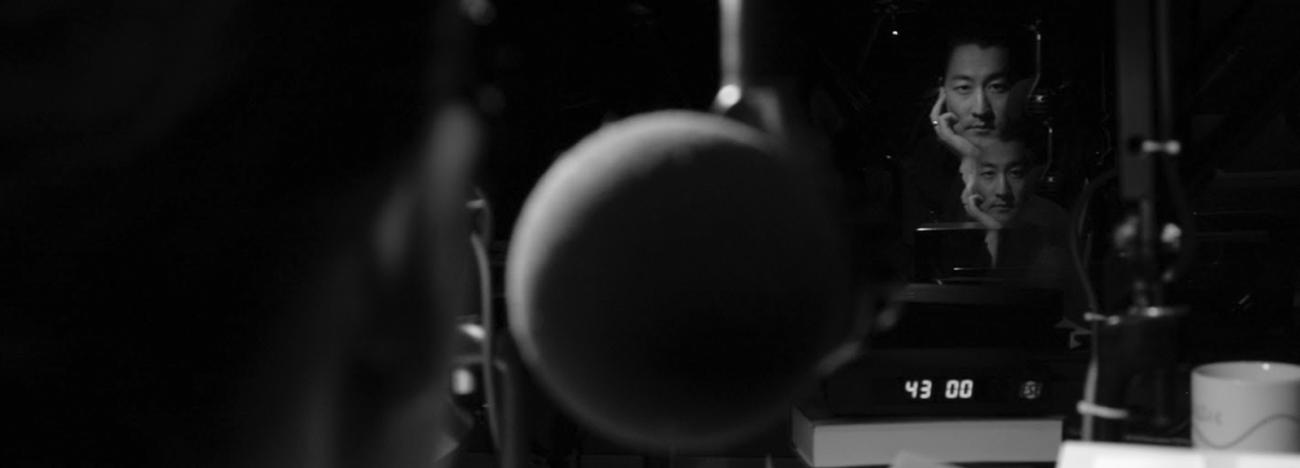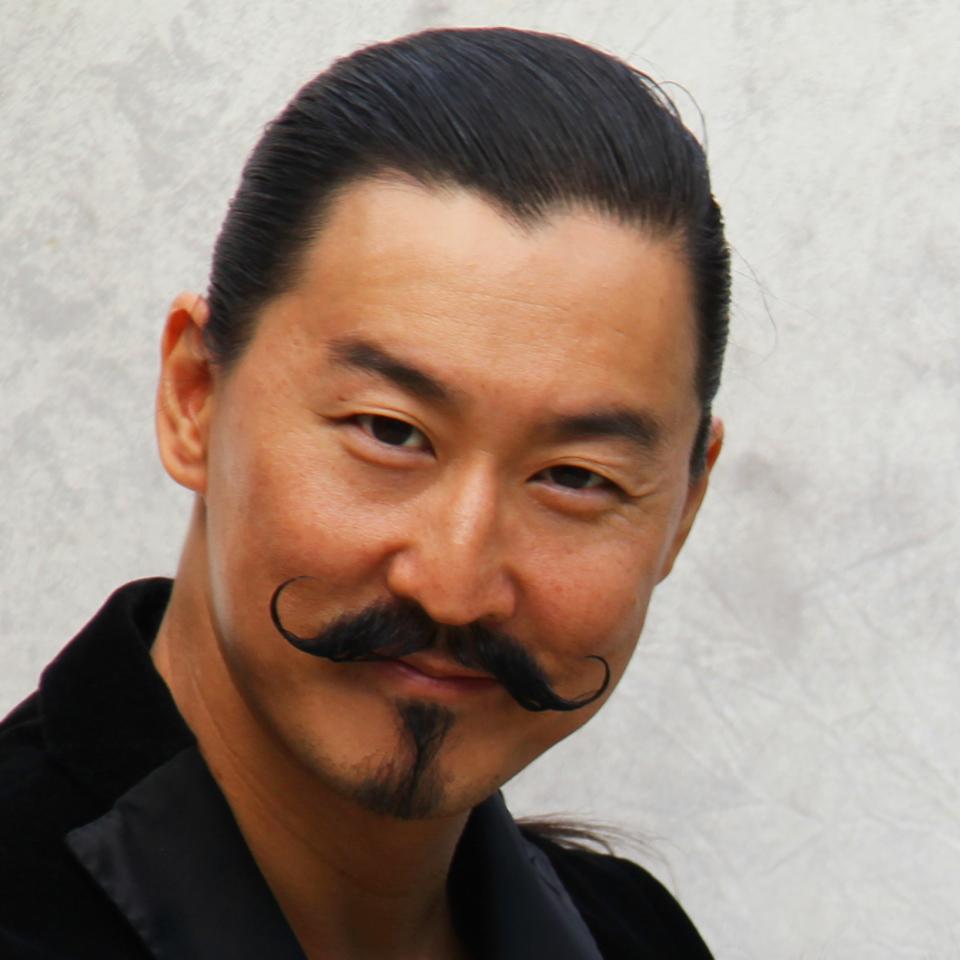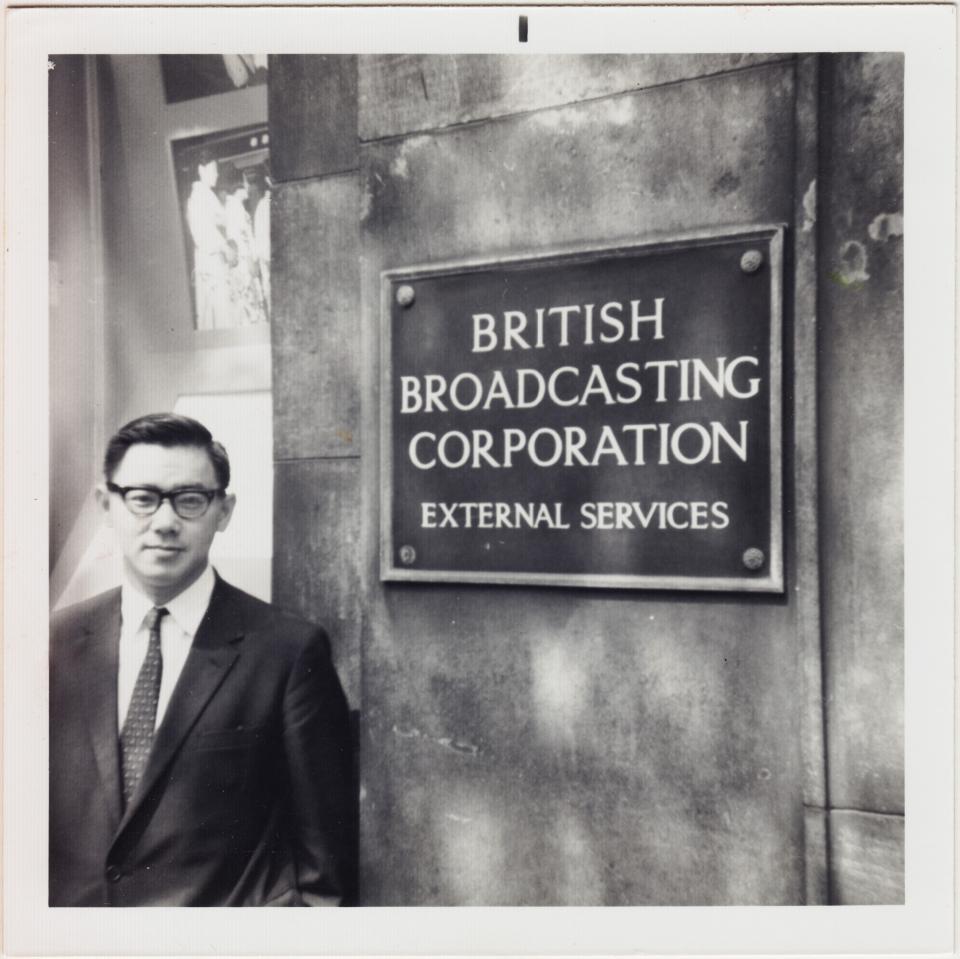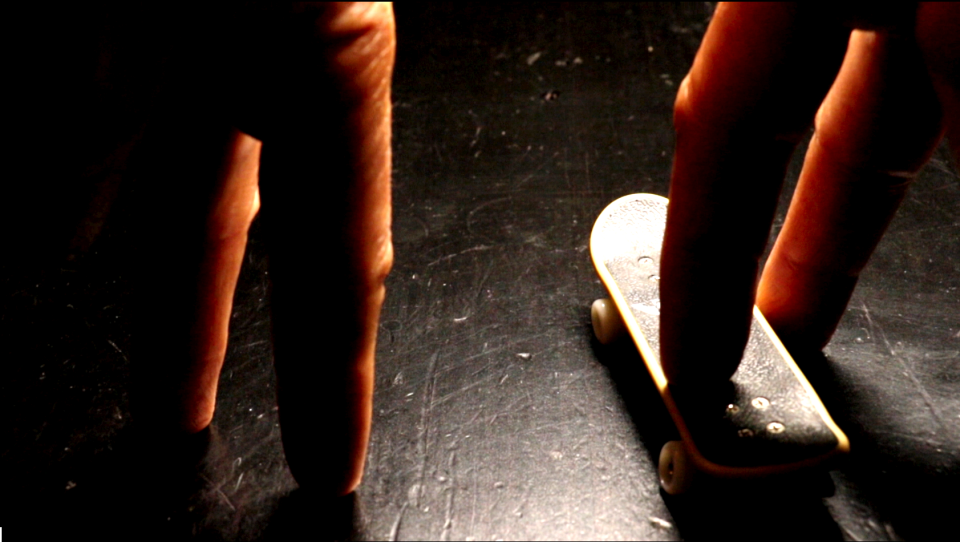Empire of the Son
For more than 20 years, Tetsuro Shigematsu, MFA’11, has been telling stories across an array of media. He is a writer, actor, performance artist, broadcaster, stand‑up comic, scholar, filmmaker, and theatre artist. A former writer for This Hour Has 22 Minutes, in 2004 he became the first person of colour to host a daily national radio program in Canada, where he co‑wrote and co‑produced nearly a thousand hours of network programming. Shigematsu’s award‑winning body of work in film, television, radio, new media, and theatre continues to be taught in Canadian and American universities as examples of creative possibility. He is currently pursuing his PhD as a Vanier Scholar at UBC.
[/callout]
When I was accepted into UBC’s MFA Creative Writing program back in 2011, I was returning to school mid‑career as a mature student, which is a euphemistic way of saying my career wasn’t exactly on fire. I had tried my luck in Hollywood and failed. Life had given me a good beating, and I needed a cave to crawl into so I could gather my energy, buy some time and figure out my next move. That cave turned out to be Acadia Park, UBC graduate student housing on the edge of the rainforests of Pacific Spirit Park.
Six years prior in 2005, I had moonwalked out of a national hosting gig on the CBC. “Hi, I’m Tetsuro Shigematsu. You’re listening to The Roundup here on CBC Radio One!” Does that ring a bell? No? Well lemme tell you, every weekday my voice was heard from coast to coast by over a million weekly listeners. These days I make theatre. Oh, how the mighty have fallen.
Given my background as a broadcaster, such a downward career trajectory strikes some people as counterintuitive, or maybe just sad. Usually people are trying to go in the opposite direction. Whether they admit it or not, every young kid at the Fringe secretly dreams of being on TV one day. After all, it’s only natural to seek bigger and bigger audiences. But as someone who has been there, and done that, I’ll take genuine human engagement over abstract numbers any day. Quarterly audience reports can’t reach out and embrace you tightly after a show.
As someone who gives the impression of having seen it all and done it all in Canadian arts and entertainment, I am sometimes asked for career advice. This question always makes me so proud. To think, that I could be so convincing at projecting this illusion of success.
If people really knew the reality of my existence – how my retirement plan consists of visiting my daughter for brunch one day, and then refusing to leave – I think the lineup for my advice would surely dwindle. But I think what people REALLY want to know is how they too can write for a program like This Hour Has 22 Minutes or host a network program on CBC because, after all, things like that look pretty impressive in my bio, no? I always say, “Do something so great the world will sit up and take notice.”
For me, that something was a little show called Rising Son, which I wrote and performed in Montreal during the early 1990s. It was a perfect little show that no one ever saw except for friends and family, plus one other person who recorded an audio clip that got played on the radio, and then BOOM! I was thrust into the world of Canadian broadcasting.
Inheriting The Roundup radio program from the Mozart of Canadian broadcasting, the Great Bill Richardson, was an incredible honour, but as someone who went to art school, I found the day‑to‑day low level of creativity that the position demanded, like crafting witty promos, was slowly killing me.
"Here’s something you might not know about microphones. When used correctly they can double as a flashlight into the shadowy corners of someone’s past."
Don’t get me wrong. Meeting fascinating people who sat across from me over the console was brilliant, but as they waltzed off to their next adventure – another concert, another movie, another space mission – I’d often feel like shouting, “Take me with you!” Until one day, I finally summoned the nerve to leave on my own. After grabbing my trusty CBC reporter’s mic and tossing it in my hobo bindle, I left the building.
Back then my siblings questioned the wisdom of their ne’er‑do‑well baby brother walking away from a permanent staff job with full dental benefits, but I had this really great idea. Maybe it wasn’t very original. Okay, it was actually the LEAST original idea in the whole wide world: I was going to try and make it in Hollywood. Did I make it? No. Not even close.
LA is a weird place. It’s either hot, or really hot. This lack of seasons makes it hard to mark the passage of time, but I think I lost half a decade there with nothing to show for it. I auditioned a lot but to no avail. Just before I left, I finally landed my first and last Hollywood TV role: killing Vikings and talking smack on Spike/MTV’s reality show called The Deadliest Warrior. Maybe you’ve seen it? Actually, if you’re reading this magazine, that would be a statistical impossibility. Your level of education makes it illegal for you to subscribe to this cable package. And if you happen to spy this show over your nephew’s shoulder, more than five minutes of exposure to this type of industrial‑grade, protracted‑adolescent programming will cause your overeducated head to explode clean off your shoulders.
After driving my U‑Haul truck of broken dreams back to Canada, I began my creative writing MFA at UBC. As a former broadcaster, my sense of audience entitlement was too inflated to spend several years slaving over a collection of poetry or an unpublished novel no one would read, so instead I opted to do a series of YouTube videos for my thesis, which ended up racking up more than a quarter million views. Being a mature student was more fun than I could have ever imagined and I wanted to keep going. Because the MFA is a terminal degree, I switched to another department at UBC.
Once I was accepted to do my PhD in education, I thought here’s my one chance to be a scientist, maybe do some real social science. I wanted to buckle down, wear a white lab coat, hold a clipboard and authoritatively order unsuspecting test subjects to faux‑electrocute confederate Millennials for choosing pumpkin spice lattes over pumpkin spice lattes, (I may have slept in the day they taught Designing Experiments Using the Scientific Method). Instead, my sagacious PhD committee advised me to choose a thesis project that would better play to my strengths.
When my friend Donna Yamamoto (UBC alumna, psychology), artistic director of Vancouver Asian Canadian Theatre, offered me the opportunity to write and perform my own work, I knew that it could be part of my thesis. My previous one‑man show, Rising Son, was about my acrimonious relationship with my Japanese father from the perspective of a 20‑something Canadian wrestling with identity politics. Not a cliché at all!
Now I wanted to revisit that material with the more nuanced perspective refracted through the multiple laminations of all my various experiences in film, radio, TV, and stand‑up comedy. My father was a public radio broadcaster. I had been a public radio broadcaster. He worked for the BBC. I worked for the CBC. Between us we had millions of listeners. But we never spoke with each other. In my whole life, I never had a single conversation with my dad beyond, “pass the soya sauce.” And I was fine with that, but now that I was a father, I knew that one day my kids would begin asking questions about who they are, where they came from. And if they ever started asking questions about their grandpa, I didn’t want to say, “I don’t know.” So when he began to die about a couple of years ago, I took it upon myself to start recording his stories. It was now or never.
"My father was a public radio broadcaster. I had been a public radio broadcaster. He worked for the BBC. I worked for the CBC. Between us we had millions of listeners. But we never spoke with each other. In my whole life, I never had a single conversation with my dad beyond, ‘pass the soya sauce.’"
Here’s something you might not know about microphones. When used correctly they can double as a flashlight into the shadowy corners of someone’s past. When I pointed my old CBC mic at my dad, I discovered vast worlds contained within him – from the ashes of World War II and Hiroshima, to swinging London in the 1960s. I learned how he had tea with the Queen of England and that he watched Marilyn Monroe sing Happy Birthday to JFK.
My dad died two weeks before our show opened. So he never did get to see it, which was actually kind of a relief, because Empire of the Son isn’t exactly a son’s glowing tribute to his dad. It’s an unflattering portrait of a complicated man, but it’s also an enthralling ride through the 20th century.
One of the things that makes our production of Empire of the Son special is our use of a live cinema camera. This is how Vancouver theatre critic Jo Ledingham described it in her review: “The best part is how inventively it is told... most innovative is his use of real‑time videocam projections: a tiny paper boat in a dish of water projected as he films it; two fingers playing with a miniature skateboard underscored with a less‑than‑respectful conversation with his father; two fingers like a pair of skaters gliding across an imaginary frozen pond on Grouse Mountain. A syringe of a cloudy liquid squirted into a bowl of clear water erupts like a huge mushroom cloud on the screen. Like a Japanese painting, it’s all about the minimal strokes of the brush; our imagination fills in the rest.”
Before a single review had been written, Empire of the Son made history. To the best of our knowledge, for the world premiere of a Canadian play to completely sell out its entire run before opening, or even previewing, has never happened before. Not only that, the extension also immediately sold out. The critics have been unanimous in their praise, with the Vancouver Sun naming it the “best show of 2015,” and the Georgia Straight’s Colin Thomas calling it “the most important show of the year.” Empire went on to garner six Jessie nominations, including Outstanding Original Script, Outstanding Performance by an Actor in a Lead Role, Outstanding Production, plus the Critics’ Choice Innovation Award.
The show is being remounted at the Cultch in East Vancouver this November, before it tours across Canada, debuting at the National Arts Centre in Ottawa. I recently got a text message from my publicist Teresa Trovato letting me know that, as part of the promotional efforts, I’m booked to be a guest on Q on CBC Radio. So now I’m in the guest chair, and even though I don’t have dental insurance, and I’ll likely be renting for the rest of my life, so far I’m liking the view from here.
Tour dates for Empire of the Son:
- OTTAWA – National Arts Centre, November 22 – December 3, 2016
- MONTREAL – Centaur Theatre, January 10 – 14, 2017
- TORONTO – Factory Theatre, January 18 – 29, 2017
- NEWFOUNDLAND – Artistic Fraud, 2018
- CALGARY – High Performance Rodeo, 2018
You can follow Tetsuro Shigematsu @tweetsuro, shiggy.com, or on facebook.com/tetsuro.



































